There’s been lots of discourse in the media discussing how we use our imaginations, and how our imagination use impacts our ability to read. When I read, I am able to picture the story in my head as though I’m watching a movie; but many people say they don’t have that ability, and therefore, don’t like to read as much as I do.
But this devastating problem may just have a solution: try reading books by filmmakers! These vibrant, visual storytellers just might be able to unlock something in your mind.
All of this being said, the filmmaker to author transition is a notable one for readers and non-readers alike. The list of books below are all examples of quality reading material: they play with prose and plot, explore historical events and social commentary, and perhaps most notably, they boldly navigate the human experience from all sorts of different perspectives.
Something that filmmakers can often do without even thinking about it is making you feel something. None of these books are a waste of words; each one provides incredible value, whether it be through an illuminating perspective on a hot-button social issue or through a beautiful display of prose.
If you’re looking for a story that is most likely to change your life for your next read, look no further than our list of books written by filmmakers.
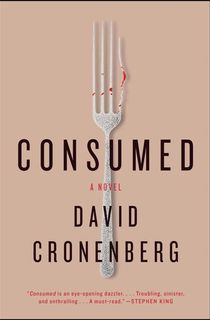
Consumed
An unflinching, fictional account of the freaky side of literature, Consumed is full of cannibalism, bondage, medical enigmas, insect infestation, acrotomophilia, gear porn, yellow journalism, and of course, sex. Of all kinds. It’s been said that this book is the epitome of David Cronenberg…so if you’re a Cronenberg fan, keep on reading.
Naomi and Nathan are nomadic, freelancing, lover-competitors consumed by the digitally-connected, yellow-painted journalism age. Both journalists, Nathan prefers the freaky end of medical photojournalism, while Naomi appreciates click-bait headlines about excessive, splashy murders.
As Nathan searches for the doctor who named the esoteric venereal disease he contracted in Budapest, Naomi shacks up with the cannibal who killed, decapitated, and ate part of his French intellectual lover–and its their mutual affinity for consumerism, sex, and betrayal that brings this provocative, dreamlike story together. After all, everyone has their secrets; but they’re always juicier when they come from people who have no good sense.
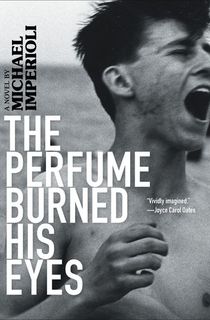
The Perfume Burned His Eyes
A nostalgic, classic New York coming-of-age story wouldn’t be complete without grit and heartbreak. Eighteen-year-old Matthew writes the story of his boyhood in 1976 Jackson Heights, Queens. His Queens home doesn’t last much longer though, as following the loss of his father and grandfather, his mother’s inheritance plants them in a posh Manhattan apartment. Though only three miles from the home he knew so well, his new life is rife with the unknown, and now he has no father-figure to guide him. Until he befriends Lou Reed, that is.
The drug-addicted, artistic/shamanic musician who lives with his transgender girlfriend Rachel in the same building quickly becomes an unorthodox father-figure to Matthew. As Matthew finds himself falling hard for the mysterious, manic-pixie-dream-girl Veronica at his new school, among other landmarks of growing up, Lou is there through it all.
Matthew writes the book two years after the story begins, and concludes with an epilogue written in 2013, two days after Lou dies, with Matthew in his 50’s.
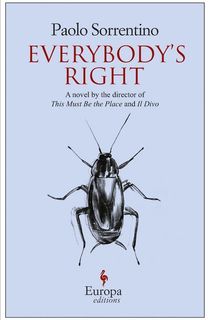
Everybody's Right
Everybody’s Right is a story that perfectly encapsulates what stardom looks like with rose-colored lenses on. Tony Pagoda had it all: money, fame, women, and talent, with a successful entertainment career in Italy. But as the public’s taste in music goes awry, so does his career; and he has no choice but to leave the past behind and settle in South America following a show in Brazil to start anew.
It is in this part of life that he begins to struggle not only with the loss of his stardom, but also with his view of the world. Going from mixing socially with the likes of Sinatra to abandoning music altogether has forever altered his perception of the world, and now Tony must learn to reconcile with life, or lose himself completely. Anything but a simple story, Tony’s shows us how fame, the loss of fame, and all the repercussions that accompany it, can turn a naive and happy man into a monstrous beast.
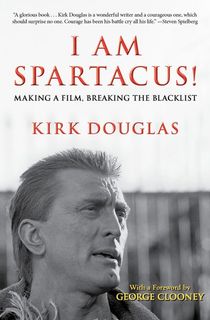
I Am Spartacus!
Featuring a forward by George Clooney, I Am Spartacus! is an entertaining memoir about the making of Spartacus. At 95, Kirk Douglas looks back on the audacious decisions that led to the making of the legendary gladiator film.
Douglas’s iconic making of a producer, philanthropist, author, actor, and etc. began with courage. A detailed story (enhanced by newly discovered period photography of the stars and filmmakers both on and off the set) of the politics that made the production of Spartacus near-impossible in the first place, the book provides readers with a detailed account of the time, as well as the ways in which Douglas’ navigation of the sociopolitics created the most expensive film of its era, and ended the notorious Hollywood blacklist.
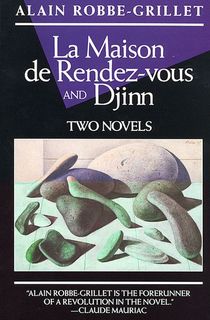
La Maison de Rendez-vous and Djinn
This book contains two revolutionary works from Robbe-Grillet, both which showcase the unsquashable talent from the “front-runner of the ‘new novel’ literary movement.” La Maison De Rendez-vous is a novella based in Hong Kong in Lady Ava’s mysterious Blue Villa. A passionate story of crime and intrigue, the novella only captures the events of one evening, but from multiple different characters’ perspectives.
Djinn, a slightly more haunting and disorienting novel, follows the story of a young man who joins a secret organization run by alluring, androgynous Djinn, an American girl. Tasked with posing as a blind man, he eventually realizes that the mysterious nature of his undisclosed missions, bizarre encounters, and fractured time sequences cause him to feel as blind as he is pretending to be. Desperately searching for both the purpose of his mission and Djinn’s identity sets him on a quest for his own identity made ever-complicated in an ever-shifting space-time continuum.
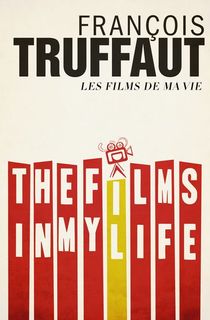
The Films in My Life
A collection of essays with readable movie criticism, you won’t want to miss this book by one of the most legendary and iconic movie critics and directors of the French New Wave. The personal and informal nature of the 100-plus essays (including the film criticism Truffaut wrote over many years for Cahiers du Cinema) give readers a passionate inside look into his real excitement for the movies that influenced him.
With no shortage of compelling analyses and insights into how these movies became legends, from the pioneer of cinematic arts writing, we get to examine the likes of Hitchcock, Welles, Chaplin, Renoir, Buñuel, Bergman, Clouzot, Cocteau, Capra, Hawks, Guitry, Fellini, and how their work led to classics like The 400 Blows, Jules and Jim, and the rest of the French New Wave Movement.
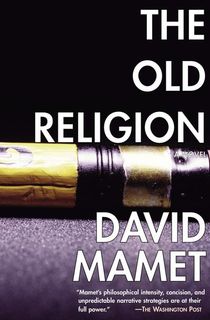
The Old Religion
In a powerful exploration of justice, racism, and a “rush to judgment,” Mamet vividly reimagines horrifying cameos of Jewish injustice in a world dominated by the Christian faith. In 1913, an investigation of the Jewish manager of the National Pencil Factory, (Leo Frank) in which a young woman was found murdered, condemned Leo to life in prison for a crime he didn’t commit.
Shortly following his incarceration, he was abducted from his cell and lynched in front of a gleeful mob. In The Old Religion, we read from Leo’s perspective to find the consciousness of a man whose thoughts are rightfully frothy with white-hot anger in the face of prejudice and injustice.
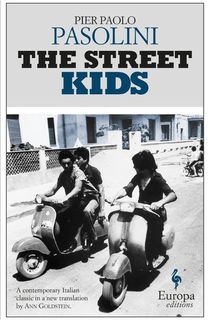
The Street Kids
Renowned Italian filmmaker Pier Paolo Pasolini tells the provocative story of a group of urban underclass adolescents in post-war Rome. Working odd jobs, committing petty crimes, and prostituting themselves are only parts of the hand-to-mouth lives they lead.
The masterpiece, though heavily bashed upon its publication due to the intense themes, is more than just a story: it’s an analysis of the neorealist movement of the 1950’s, and how the borgate was not a group of people you cross the street to avoid; they’re an entire social class who should not so soon be forgotten.
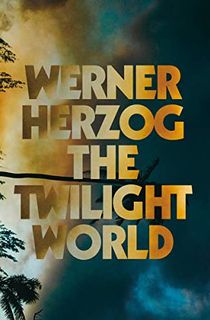
The Twilight World: A Novel
A book very true to its title, The Twilight World, written by the great filmmaker Werner Herzog, tells the unbelievable story of Hiroo Onoda, a Japanese soldier who defended a small island in the Philippines twenty-nine years after the end of WWII, unaware the fighting was over. When Herzog was in Tokyo directing an opera in 1997, he and Onoda developed an instant rapport that resulted in many meetings between the two, unraveling the story of Onoda’s “long war.”
On Lubang Island at the end of 1944, Onoda was given orders by a superior officer that required him to hold the island until the Imperial army’s return. He was tasked with defending the island by any means necessary, forbidden to take his own life, and to provide only misleading information if he were captured. He waited for weeks, then months, then years, never abandoning his post–until eventually time itself seemed to melt away. Herzog immortalizes and reimagines Onoda’s absurd yet legendary experience in this fictitious war, resulting in a dreamlike story that is a novel within itself, and Onoda the main character.
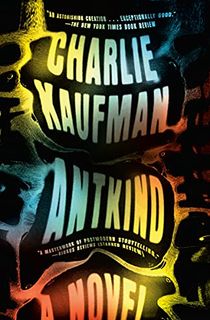
Antkind: A Novel
From Charlie Kaufman, the Oscar-winning screenwriter of Being John Malkovich, Adaptation, Eternal Sunshine of the Spotless Mind, and Synecdoche, New York, comes Antkind, an original, contemporary debut novel that explores the very nature of existence itself.
In it, we meet B. Rosenberger Rosenberg, a neurotic underdog of a film critic, who stumbles upon a life-changing and, as of yet, unseen film. Not only will it change his career trajectory forever, but it could also possibly be the greatest movie ever made–after all, a three-month-long stop-motion that took 90 years for a reclusive auteur to complete couldn’t be anything but. B. has made it his mission to show it to the rest of humanity, but there’s just one problem: the film is destroyed, so he must remake it from memory.
Trapped between impressing faceless people through the degenerative hellscape that is Twitter, but also wanting not to care at all about what anyone says, B. must navigate the ever-fluctuating pace of “like” culture while simultaneously showing everyone a once-in-a-lifetime masterpiece that could alter their world forever if they just let it.
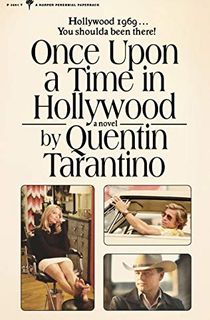
Once Upon a Time in Hollywood: A Novel
By now a household name, you’ve very likely seen a Quentin Tarantino movie, whether you knew it or not (although, you probably did). A quirky and often somewhat brutal writer, the film this book was based on won an Academy Award, though many doubted if Tarantino could pull off writing a novel. Like most of Tarantino’s works, this movie novelization is a hit or miss; as he has a consistent writing style, you’ll know from the start if this is a book for you based on how much you like Tarantino in general.
Though seemingly plotless, Once Upon a Time in Hollywood feels more like capturing a moment in time–in this case, the moment being 1960’s Hollywood. The book follows the origin stories of Rick Dalton, Cliff Booth, Sharon Tate, and Charles Manson, though with an emphasis on Rick Dalton. Through their experiences, readers get a sense of what transition from Old Hollywood to modern Hollywood really felt like, and just how intense that “tug of war” felt. In a time of political changes of the tide, the transition of society’s values, and culture shocks at every corner, 1969 Hollywood was the physical representation of it all.
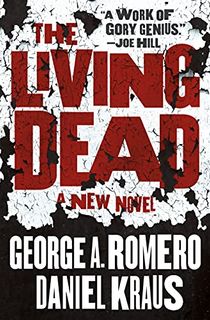
The Living Dead
While it may sound like just another post-apocalyptic zombie dystopian novel, you don’t have it figured out like you think you do. Because yes, it begins with one body, (because it always begins with one body) and yes, it spreads quickly (because it always spreads quickly). But the Night of the Living Dead director and father of the zombie film still has a few tricks up his sleeve.
What’s different about this one—besides the end, which I will not be spoiling—is the perspectives we get along the way. Typically, zombie film and literature gives us an idea of what the end of the world looks like from the perspective of a regular citizen. We’ll get details on the outbreak, how the system fails us, and maybe what type of person you have to be in order to survive. And often, these stories leave us wanting closure, as even though the story is over, the plot never feels like it is.
But in The Living Dead, we see perspective from characters we may never have considered before: teenage girls in a Midwestern trailer park; sailors on a US aircraft carrier; a surviving news anchor who continues to try and do his job; an autistic federal employee who is charting the outbreak and conserving data despite the possibility that no one will ever get to use it. Most importantly, we get to read from the perspectives of the zombies themselves. Romero leaves you questioning, for a while, what is fact and what is fiction, and whether or not zombies are people too. You think you know the answers, but I’ll reiterate: you don’t have it figured out like you think you do.
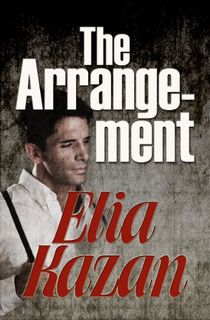
The Arrangement
Eddie Anderson is a successful, wealthy man with a beautiful home and an attentive wife. But he’s also restless; so naturally, he has a mistress. But now she wants to change that arrangement. How Eddie got to this point, and how he plans to get out of this mess is the basis of Academy-Award-winning Elia Kazan’s book.
It sounds pretty self-explanatory, but when it comes to matters of the heart, nothing is ever as simple as it seems…
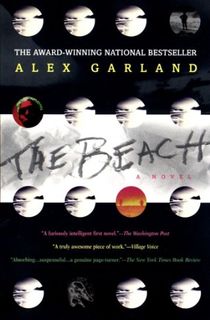
The Beach
A social commentary about young people who, though burdened by the legacy of the generation before them, desperately long for an unruined landscape, but realize how difficult it is to inhabit one when they finally find what they feel they deserve.
On Richard’s first night during his travels to Southeast Asia, a fellow traveler slits his wrists and bestows upon Richard a meticulously drawn map to “the Beach.” As Richard comes to learn, the Beach is essentially an untouched oasis where, it is rumored, a select international few have settled in a communal Eden. Along with a young French couple, Richard discovers the Beach, and though it is indeed as idyllic as it was reported to be, he quickly learns that Beach culture has troubling, and dare he think dangerous, undercurrents.
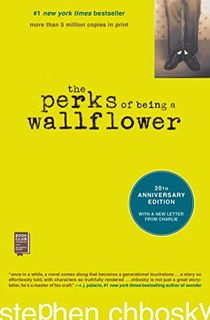
The Perks of Being a Wallflower
By now a well-known book and movie, The Perks of Being a Wallflower is an intense, provocative, and contemporary coming-of-age story through the naive eyes of Charlie and his high school experience. Charlie’s devastating yet uniquely hilarious letters may not disclose where he lives, nor the letter’s recipient, but it does disclose a world in which many of us know personally, but many of us don’t remember fondly.
You can feel the knot in Charlie’s stomach as you read, knowing exactly what it’s like to try and live your life and try to run from it at the same time. The world of sex, drugs, first dates, mixtapes, family drama, and new friends, simple yet simultaneously unbearably convoluted, when all you need is a perfect song on a perfect drive to feel infinite, yet no other conditions will provide the feelings of infinity that you desperately seek.
Featured image: Jakob Owens / Unsplash






